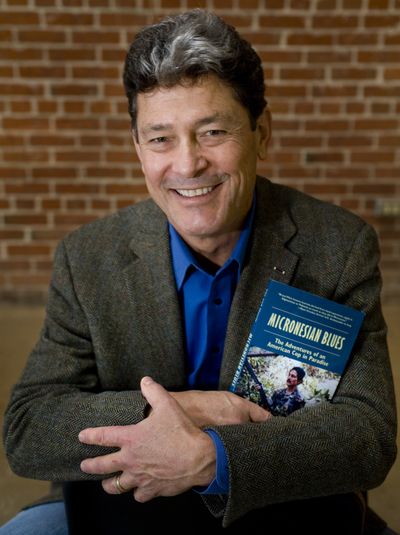Author hopes to shed light on value of cross-cultural police training

In the late 1970s, Washington State University Spokane professor Bryan Vila went to Micronesia, straight from working with the Los Angeles Sheriff’s Department. His job in Micronesia was to train police among a disparate set of island cultures. A book about the six years he spent there, “Micronesian Blues,” has just been published. The book’s co-author is Cynthia Morris.
Q. Why write a book about your experiences in Micronesia?
A. I aimed for a non-academic book that people would want to read. But I also wanted to share the lessons I learned there about effective cross-cultural police training.
Q. But it’s been 30 years since all these events happened. Why write this book now?
A. There’s never been a period when the issue of cross-cultural police training has been so important. It’s been in the news often since 9/11 because developing competent police forces is critical to U.S. counterterrorism, counterinsurgency and nation-building efforts in Iraq, Afghanistan and other developing countries. But report after report shows that we’re going about it all wrong, at least from my perspective. This frustrated me, particularly after spending six years in Micronesia figuring out how to do it right. So I thought I ought to share what I know.
Q. Like what, for example? How did living in Micronesia affect your worldview and change your understanding of being a policeman?
A. For one thing, working in Micronesia helped me see policing through the eyes of cops who were part of the communities they served. I realized that I couldn’t be effective training police in another culture if I kept a “them and us” mentality. The more I participated in local culture, the better I fit in. The more I tried to find ways to merge traditional ways with the challenges of modernization, the more successful I was. But it wasn’t easy. It was certainly not the paid vacation in paradise I expected when I first went there.
Q. Is there much relevance between Micronesia in the 1970s and the countries the U.S. and other Western nations are working to establish rule of law in today?
A. Absolutely. Even though Micronesia is very different from hot spots like Iraq or Afghanistan, the skills and understanding involved in training good police in a foreign culture are universal.
Q. What are you doing today that keeps you focused and excited?
A. I’m taking 45 years of experience as a Marine, a street cop, a police chief and now a professor, and I’m trying to make a difference. I’m focusing on real-world problems like police fatigue, crime prevention and cross-cultural police training, because I know them firsthand. And it takes street smarts and hard science to crack these problems.
Q. Where can people buy “Micronesian Blues”?
A. It’s available in the local authors and current affairs sections of Auntie’s Bookstore downtown. It’s also available through Paladin Press, at www.paladinpress.com, and at Amazon.com.